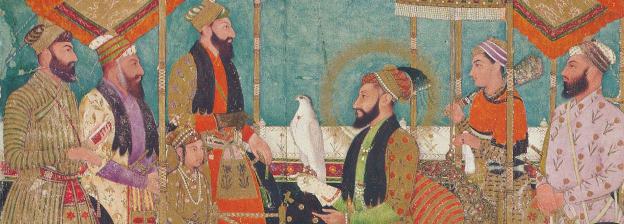

The most important contemporary European authority for the early part of Aurangzib’s reign is the French physician Bernier, who lived in India from 1659 to 1666, and whose Travels have recently been admirably edited by Mr. Constable. Bernier writes as a philosopher and man of the world: his contemporary Tavernier (1646–1667) views India with the professional eye of a jeweller; nevertheless his Travels, of which Dr. Ball has produced a scientific edition, contain many valuable pictures of Mughal life and character. Dr. Fryer’s New Account of India is chiefly useful as a description of the Maratha power under Sivaji, for the author during his visit to India (1672–81) did not extend his travels further north than Surat. Like Fryer, Ovington (1689–92) did not go to the Mughal Court, and his Voyage to Suratt contains little beyond what the English merchants of Bombay and Surat (the only places he visited) chose to tell him. Something may be gleaned from Yule’s elaborate edition of Hedges’ Diary as to the Mughal provincial administration in 1682; and Dr. Gemelli Careri’s visit to Aurangzib’s camp in the Deccan in 1695 throws light on an obscure portion of the reign. Catrou’s Histoire Générale de l’Empire du Mogol (1715), founded on the Portuguese memoirs of ‘M. Manouchi,’ would be invaluable if there were any means of authenticating it by comparison with Manucci’s MS.; as it is, the work is too full of errors, and savours too strongly of the chronique scandaleuse of some malicious and disappointed backstairs underling at the Mughal Court, to be esteemed as an authority. The contemporary Indian chroniclers, Khali Khan, Musta’idd Khan, ’Abd-al-Hamid Lahori, Inayat Khan, Bakhtawar Khali, and others, may be consulted in Elliot and Dowson’s invaluable History of India as told by its own Historians, vol. vii. Elphinstone’s History of India has been followed in its admirable account of the Deccan campaigns. All dates are given in New Style, and the varying spellings of Indian names have been reduced to uniformity. I have to express my gratitude to Sir William W. Hunter, who had originally undertaken this volume of the series, for making over to me in the most generous manner all the MS. materials which he had collected in India for this purpose.
S. L.-P.
This collection transcribed by Chris Gage![]()
